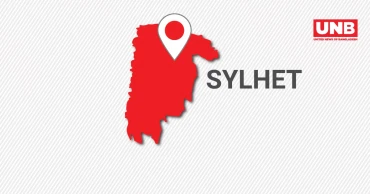Trap
Bangladesh already in middle-income trap: Debapriya
Dr Debapriya Bhattacharya has said that Bangladesh is already caught in the middle-income trap due to the low productivity of its labour force across the industrial, agricultural and services sectors.
He made the remarks during a roundtable titled ‘Bangladesh’s Aspiration to be a Middle-Income Country: Trajectory, Reality, and Perils’, held at the Foreign Service Academy in Dhaka on Tuesday.
The event was organised by Diplomate World, the only diplomatic publication magazine in Bangladesh.
“Changing a government does not necessarily mean a change in governance. Without addressing this culture, reforms will not yield any meaningful results,” Dr Debapriya pointed out.
He said that the manufacturing sector remains overly dependent on the garment industry, underscoring the need for incentives to unlock the potential of other sectors, including jute, leather and IT, to achieve effective export diversification.
Decline in Education Quality
Dr Debapriya, head of the White Paper Drafting Committee and a distinguished fellow of the Centre for Policy Dialogue (CPD), said that the quality of education in Bangladesh has deteriorated significantly. “The country allocates less than 2 percent of its GDP to education, one of the lowest rates among comparable economies.”
Read: Bangladesh needs green growth to achieve its vision of upper middle-income country by 2031: WB
Highlighting inefficiencies, he said that much of the education budget is absorbed by non-productive expenditures such as salaries, leaving a disproportionately small amount for actual development.
“Rather than setting up universities in every district, improving the quality of primary education should be prioritised,” he emphasised.
High Migration Costs and Corruption
Dr Debapriya also addressed the high cost of migration for Bangladeshi workers, which is three times that of Nepal. “This is due to corruption. A syndicate is exploiting migrant workers, draining their earnings without offering any tangible benefits,” he said.
Urbanisation Challenges
Unplanned urbanisation and industrialisation have created significant challenges, particularly in traffic management, law and order and the delivery of quality public services, Debapriya said.
“These issues present another major hurdle for Bangladesh as it seeks to escape the middle-income trap,” he added.
Read more: Over 80% of neurological deaths, health loss occur in low- and middle-income countries: Study
Former diplomats, Foreign Service officials and academicians, among others, attended the event.
1 year ago
3 constables dismissed for trying to trap Sylhet college student in drug case
Three constables of Sylhet Metropolitan Police (SMP) have been dismissed for trying to trap a college student in a false drug case.
The dismissed constables are Md Jhunu Hossain Joy, Imran Mia, and Mohammad Abdullah appointed at SMP police line, confirmed Additional Deputy Commissioner of SMP Sudip Das confirmed on Thursday
On October 13, Saifur Rahman Asad, 18, son of police inspector Abu Sayed, sold his Android phone online at Tk 16,000.
After receiving the money Asad went to Hazrat Shahjalal Mazar Sharif area with a friend when those police constables apprehended them. They claimed to have recovered yaba from Asad and his friend’s bag while searching.
Asad protested their allegation and informed the matter to his father, who is also a police officer working at the Police headquarters.
Read: Body of youth missing since being chased by cops recovered from Meghna
Later, Sub Inspector Jamal Bhuiyan from Shah Paran police station took them and released them after they signed a bond.
On November 24, an investigation report submitted by SMP ADC (force) Saleh Ahmed of police lines found proof of the allegations against the constables being true, said ADC Sudip Das.
Departmental cases and other actions will be taken against the dismissed constables, he said.
3 years ago



